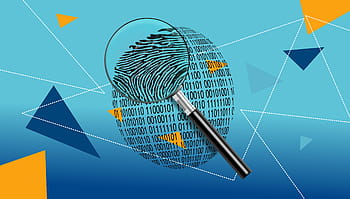Are you concerned about the security of your personal health information? Biometric security solutions are becoming increasingly popular in the healthcare industry. In this article, we’ll explore the benefits and challenges of biometric security in healthcare, as well as the latest advancements in this technology.
Biometric Security in Healthcare: What is it?
Biometric security involves the use of unique physical or behavioural characteristics to verify a person’s identity. It can include fingerprints, facial recognition, iris scans, voice recognition and more. It is used to authenticate and provide access to sensitive information, locations and devices.
The healthcare sector collects and stores sensitive personal information making it a prime target for cybercriminals. Biometric security solutions in healthcare can help protect this data by providing secure authentication methods that are unique to each individual.
Benefits of Biometric Security in Healthcare
The use of biometric security in healthcare has many benefits.
Firstly, it provides greater security than traditional methods like passwords or PINs. Biometric data is unique to each individual, making it much harder for cybercriminals to steal and use it for fraudulent activities.
Secondly, biometric security solutions can improve patient safety. Healthcare providers can use biometric authentication to quickly and accurately identify patients, reducing the risk of medical errors due to misidentification.
Lastly, biometric security solutions can improve efficiency in healthcare delivery. The use of biometric authentication can streamline the administrative tasks involved in healthcare, making it easier and quicker for healthcare professionals to access patient records, prescribe medications and perform other necessary tasks.
Challenges of Biometric Security in Healthcare
While biometric security has many benefits, it also comes with unique challenges in the healthcare industry. One of the main challenges is ensuring that biometric data is stored securely. Healthcare organizations must have robust security measures in place to safeguard biometric data from cyberattacks.
Another challenge is managing patient privacy and consent. Patients must be informed about how their biometric data will be collected, stored and used. They should have the option to opt-out of biometric authentication if they wish to do so.
Biometric Security in Healthcare: Latest Advancements
The latest advancements in biometric security in healthcare include the use of artificial intelligence (AI) and machine learning. AI algorithms can analyze biometric data to identify any abnormalities or changes in a patient’s health. This can help healthcare providers detect diseases early and provide timely interventions.
Facial recognition technology is also being used in healthcare to improve patient identification and security. In some hospitals, facial recognition technology is being used to identify patients as they enter the hospital, reducing wait times and improving patient flow.
